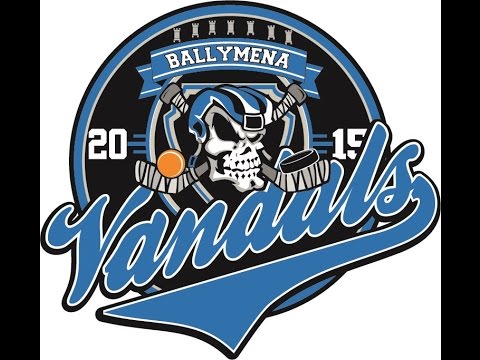Diet Planning
- Ballymena Vandals

- Mar 3, 2022
- 4 min read
Ice-hockey is a power based, anaerobic activity that requires a great deal of energy as the ATP-PC system is the one that is used the most. All positions will benefit from this meal plan because although they all have different jobs, the principles are the same. The forwards are the ones going up into the offensive zone and scoring, doing shoot outs etc, the defence are the ones who don’t do as much skating in the offensive zone but skate a lot in the defensive zone so it evens out in the end. The netminders however have to be fast and even more explosive in their skating and movements than a player does as the puck (6oz of vulcanized rubber) flies at them at an average of 80mph in some leagues. Although netminders don’t speed up the ice, aggressive goalies have been known to come right up to the neutral zone.
Hockey players need to make sure that their diet is helping their performance and not hindering them as they need to gain a lot of functional muscle so that they can cope with workouts off ice, training and playing games explosively. For fluid intake, make sure at least 2 litres of water is taken in plus ensure when on the bench, plenty of water is taken in; at least 3 litres in total of water.
Calorie burn depends on many factors, including body weight.
For example, a person weighing 125 lbs can expect to burn approximately 475 calories after playing hockey for one hour, while a person weighing 190lbs can expect a burn of about 700 calories per hour.
Although an average hockey game lasts 60 minutes, only about 25 percent of that time is actually spent playing and actively burning calories. Because hockey has high-intensity intervals, however, the calorie burn continues well after the athlete is finished playing. Since this male athlete is taking on 3000 calories a day (not including snacks and drinks) and burning at this rate, the athlete should end up maintaining their weight during the season.
Game and Practice Day Nutrition Guidelines: Breakfast
Why?
•A variety of foods containing carbohydrates and protein replenishes fuel stores and gives the body a jump-start on the day. It also helps the brain work better.
•The body’s fuel tank is empty after a night’s sleep—that’s the reason you need to break the fast!
Game and Practice Day Nutrition Guidelines: Lunch
Goals
•Let lunch be the last large meal before afternoon competition or practice. Eat lunch two to three hours beforehand.
•Include a good source of carbohydrate, protein and some fat.
•Hydrate with at least one large glass of water in addition to at least one serving of milk.
Why?
•Eating a variety of foods will help ensure your hockey player gets the nutrients needed to grow, think, play and be healthier overall.
Game and Practice Day Nutrition Guidelines: 2 Hours Prior to Exercise
Goals
•Fuel and hydrate with high-carbohydrate foods lower in fat plus a little protein.
•Choose foods and beverages that are well tolerated and easily digested since the body needs the energy from carbs.
Why?
•Foods high in fat, protein and fibre take longer to digest and may cause gastrointestinal upset during practice or competition and result in decreased performance.
What?
Choose one or two of the following:
•Fresh fruit
•Fruit-filled cereal bar
•Peanut butter and crackers
•100% fruit juice
•Granola bar
•Pudding
•Crackers and cheese
•Yogurt
•Trail mix
Game and Practice Day Nutrition Guidelines: 1 Hour Prior to Exercise
Goals
•Fuel and hydrate without stressing the digestive tract.
•Avoid simple carbs such as chocolate and sugar.
•Avoid carbonated, caffeinated beverages.
Why?
•Heavy foods will send blood to the digestive tract; you want it to go to the muscles.
•Your hockey player needs to stay hydrated to be on top of his or her game.
•Simple carbs can produce an energy spike that quickly plummets and could result in decreased performance.
Game and Practice Day Nutrition Guidelines: Post-Game/Practice Dinner
Goals
•Eat to restore energy, repair muscles and replace minerals lost in sweat and to supply nutrients for growth, development and energy for tomorrow.
Why?
• The body and brain need good nutrition to meet all growth, development and activity needs.
•Fuel stores are best replenished within a few hours after working out.
What? •Eat foods from each of the four food groups at dinner: ◦Meat and Alternatives: Lean meats, fish or alternatives such as tofu, legumes.
◦Milk and Alternatives: Fluid milk or fortified soy beverages, or yogurt.
◦Grain Products: Whole grain rice, pasta, breads, cereals, quinoa, bulgur, barley and couscous.
◦Vegetables and Fruits: To maximise nutrients from vegetables, try to have at least two different colours of vegetables at dinner. Have at least one serving of fruit. Rotate fruits throughout the week to get maximum variety.
Hydration
Ice hockey players lose a lot of sweat during practices and games. Losing 2% water can lead to a decrease of concentration levels by up to 20%, which leads to players not being able to react to the stimulus around them allowing them to be in a vulnerable position where they can get badly hurt. A few hydration tips for hockey players are:
Always be well hydrated and fuelled
Drink 5-7 mL per kg of body weight of water or a sports beverage at least 4 hours before practice (1kg = 2.2 lbs)
For a practice or game lasting more than one hour, a sports beverage that contains a 6-8 percent carbohydrate solution is recommended
Hydrate and fuel during breaks or between shifts
Try to drink 1/2 to 1 cup of sports drink every 15 minutes
Rehydrate when you step off the ice
Check your weight before and after practice to find out how much water you lost during exercise, and drink 20-24 ounces of fluid for every pound lost



Comments